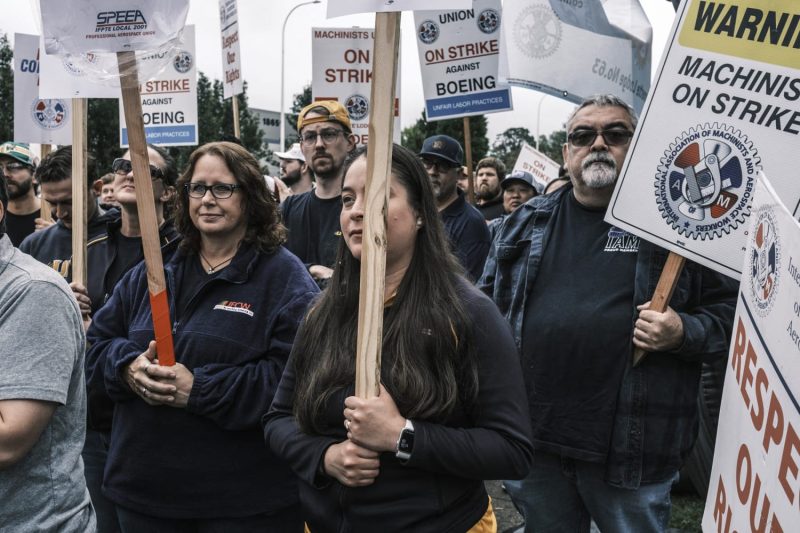The recent decision by Boeing to lay off 17,000 employees comes as a severe blow to both the affected workers and the company itself, as it struggles with mounting losses amidst a factory strike. This development underscores the challenging times faced by the aviation industry and the need for strategic decision-making to navigate through turbulent waters.
The layoffs, while a necessary cost-cutting measure to address financial losses, will undoubtedly have wide-reaching implications for the employees, their families, and the communities that depend on Boeing for economic stability. Such large-scale layoffs can create ripple effects in local economies, with reduced consumer spending and increased strain on social services.
Boeing’s woes are further compounded by the ongoing factory strike, which has disrupted production and delayed deliveries, causing a domino effect on the company’s overall operations and financial health. The strike highlights the labor issues that can arise in the manufacturing sector and the importance of fostering positive labor relations to avoid costly disruptions.
In response to the challenges it faces, Boeing must adopt a multi-faceted approach to addressing its financial woes and operational setbacks. This includes diversifying its revenue streams, investing in innovation and technology, and improving its supply chain resilience to mitigate future disruptions. Moreover, nurturing a positive corporate culture that prioritizes employee well-being and fosters open communication can help rebuild trust and morale within the organization.
Moving forward, Boeing must also stay attuned to market dynamics and changing consumer preferences to remain competitive in the ever-evolving aviation industry. This entails a proactive approach to identifying emerging trends, exploring new business opportunities, and adapting to a rapidly changing landscape.
While the road ahead may be challenging and fraught with uncertainties, Boeing has the opportunity to emerge stronger and more resilient from the current crisis. By making strategic investments, prioritizing employee engagement, and fostering a culture of innovation, the company can pave the way for long-term success and sustainable growth in the years to come.
As the aviation industry continues to face headwinds, Boeing’s ability to navigate through adversity and emerge as a leader in the global market will be a testament to its resilience and strategic foresight. By learning from past mistakes, embracing change, and staying agile in the face of challenges, Boeing can chart a new course towards a brighter future for both the company and its employees.
